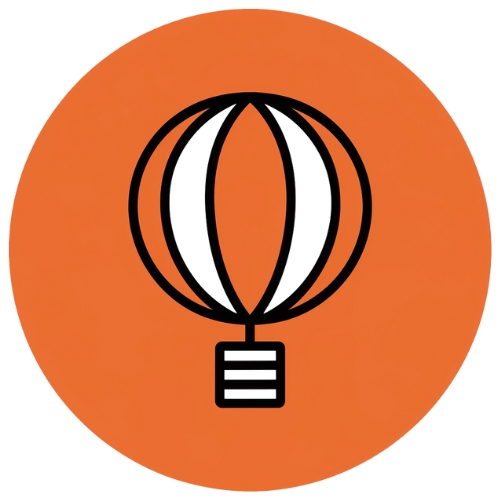
Every car buyer’s dream is to walk into a dealership, point to a car and say, “I’ll take it,” without feeling the weight of the investment they are about to make. But let’s be realistic – cars are a significant expense, and every Rand counts. With South Africa’s dynamic and ever-changing automotive market, understanding the nuances can make the difference between an okay deal and a great one. When is the best time to buy a car in South Africa?
Key Takeaways
- Seasonal car buying patterns exist, with holidays and the end of the financial year often seeing increased sales activity. Weather, however, has a less significant impact.
- The end of the financial year can be a strategic opportunity to buy a car, with dealers often motivated to clear out stock to meet annual targets.
- New model releases can affect the prices of older models. When new models are introduced, dealerships are typically keen to sell off the previous year’s stock, often offering attractive deals.
- The used car market also presents opportunities. While the optimal time to buy may differ from the new car market, factors such as supply and demand and the condition and mileage of the vehicle come into play.
About Arcadia Finance
Secure your loan with ease through Arcadia Finance, free of charge. Choose from 19 trusted lenders, all compliant with the regulations of the National Credit Regulator in South Africa.
Understanding the South African Automotive Industry
A thorough understanding of the South African automotive industry lays the groundwork for informed car-buying decisions. One wouldn’t start a journey without first studying the map, right? In the same way, let’s dissect the industry, grasping its unique traits and noteworthy players. This knowledge will serve as our compass, directing us to the best time to purchase a car.
Brief Overview of the South African Car Market
South Africa is, without a doubt, a heavyweight in the automotive industry. It boasts a vibrant car market underpinned by both domestic production and vehicle imports. South Africa is not just the heart of car consumption in Africa; it’s also a significant hub of car production. In 2020, South Africa manufactured almost 600,000 vehicles, contributing over 6% to the country’s GDP. Such statistics indicate the critical role of the automotive sector in the nation’s economy. They hint at potential car buying opportunities, especially when new models are launched, or older ones are phased out. Remember, in the car industry, introducing a new model often spells discounts for the old.
Notable Players: Key Car Brands and Dealers in South Africa
The South African automotive market is home to a diverse array of key players, with an eclectic mix of local and international car brands. These range from budget-friendly brands like Datsun and Renault to luxury giants such as Mercedes-Benz and BMW. The high-end brands are not just for show; they are actively purchased, with BMW and Mercedes often ranking among the top-selling car brands in the country. Not to be outdone, Volkswagen and Toyota consistently battle for the top spot, highlighting their popularity among South African car buyers.
South Africa is flush with both franchised and independent dealers regarding car dealerships. Large, franchised dealerships, like Imperial Auto and Barloworld Motor, offer a wide array of brand-new cars and typically have the backing of car manufacturers. On the other hand, independent dealers, such as WeBuyCars and Car King, primarily focus on the used car market, providing an alternative route for those looking to find a bargain. Knowing the key players in the market aids in understanding where potential deals may surface.

Seasonal Trends in Car Buying
Seasons play a significant role in the ebb and flow of the South African car market. Just as summer follows spring, car sales patterns follow their own rhythm, profoundly influenced by seasonal trends. To find the best time to buy a car, let’s examine these patterns and understand how the changing weather might impact our buying decisions.
When Do South Africans Typically Buy Cars?
In South Africa, car purchasing patterns exhibit distinct seasonal trends:
- January: Sales often decline compared to December, as many buyers have already made their purchases during the festive season.
- October: This month frequently records strong sales figures, attributed to the introduction of new models and promotional activities. October 2024 reported a 14.5% increase in new passenger car sales compared to the same month in the previous year.
- November: Sales can be mixed; for example, November 2024 saw robust new passenger car sales, but light commercial vehicle sales declined by 16.3% compared to November 2023.
- December: New passenger car sales typically experience a notable increase, driven by year-end promotions and consumers utilising bonuses. For instance, December 2024 saw an 8.2% year-on-year rise in new passenger car sales.
The Influence of Weather on Car Purchases
South Africa’s climate is a factor that subtly yet significantly affects car buying trends. The warmer months (October to February) are associated with increased outdoor activities, travel, and in general, a more active lifestyle. During this period, cars that support such a lifestyle, like convertibles, sports cars, and off-road vehicles, tend to be more popular. On the other hand, in the colder months (June to August), demand for these types of cars may decrease, making it a strategic time to consider these models. Similarly, sudden weather phenomena, such as a drought or heavy rain, can influence the demand for specific types of cars, like water-efficient or 4×4 vehicles. You can anticipate potential bargains by observing weather patterns and understanding their influence on car sales.
Knowing the best time to buy a car can save you money upfront, but protecting your new purchase with the right insurance is crucial. Familiarise yourself with the Different Types of Car Insurances in South Africa to ensure comprehensive coverage from the start.
Holiday Influence on Car Sales
Public holidays in South Africa have a tangible effect on monthly vehicle sales figures, primarily due to the reduction in trading days. For example, in March 2024, total new vehicle sales dropped by 11.7% compared to March of the previous year. This decline was largely attributed to the early timing of the Easter holidays, which resulted in only 20 official selling days, down from 22 in March 2023. With fewer opportunities for transactions, dealerships faced noticeable sales constraints.
Disruptions Caused by Holiday Clusters and National Events
Beyond single public holidays, clusters of holidays and national events can further disrupt regular trading. In May 2024, vehicle sales fell sharply, registering a 14.2% year-on-year decline. This slump was largely due to a combination of public holidays and national elections, which disrupted standard business operations and deterred consumer spending during that period. Dealers struggled with reduced customer footfall and shifting consumer priorities, leading to the weakest monthly sales figures of the year.
Festive Season and Promotional Sales Surges
Conversely, certain holiday periods can stimulate vehicle sales activity. December, in particular, is often a high-performing month due to festive promotions, bonus-related spending, and increased activity in the rental market. In December 2024, new vehicle sales rose for the third month in a row, increasing by 2.5% over the same month in 2023. Passenger vehicle sales were especially strong, up 8.2%, with rental companies contributing significantly to the growth. These trends demonstrate that while some holidays suppress sales, others can create ideal buying opportunities for consumers.
» Find out: What car is in your price range?
End of the Financial Year: A Strategic Opportunity
As the end of the financial year approaches, something intriguing happens in the auto industry: cars often sport tantalising price tags. This phenomenon can turn the fiscal year-end into a potential goldmine for strategic buyers. But to take advantage of this opportunity, it’s essential first to understand its origins.
Understanding the Fiscal Year in South Africa’s Auto Industry
In South Africa, the fiscal year for the automotive industry generally runs from 1st April to 31st March. As the end of this period approaches, dealerships and manufacturers alike gear up for what’s known as a ‘sales push’. But why does this happen? The reason lies in annual sales targets. These targets, set at the beginning of the fiscal year, must be met by the end of March. As the fiscal year-end nears, manufacturers and dealerships assess their progress against these targets. They may resort to incentivised selling to accelerate sales if they fall short. This can open up some attractive car-buying opportunities.
Dealer Incentives: End of Financial Year Sales Push
In the automotive industry, the end of the financial year can often resemble a high-stakes race, with manufacturers and dealerships sprinting towards their sales targets. To turbocharge this effort, they frequently turn to various incentives. These can include dealer rebates, attractive finance options, complimentary add-ons, and even straight-up discounts. While this benefits dealerships by helping them reach their annual targets, it can also benefit you as a buyer. A year-end deal could potentially see you driving off in your dream car while keeping a fair amount of change in your pocket. But as always, ensuring that the deal you’re getting genuinely provides value for money and isn’t just an illusion of savings is essential.

New Models Release: Timing Your Purchase
In the car industry, the release of new models stirs up excitement. While the shiny, upgraded cars steal the spotlight, a savvy buyer knows to look towards the shadows where older models await a new home. Let’s dive into the lifecycle of car models and explore how a new release can impact the price of older models, creating yet another opportunity for a well-timed purchase.
The Lifecycle of a Car Model: From Release to Clearance
Car models, like many other products, have a lifecycle. They’re introduced to the market, experience a peak sales period, and eventually, their popularity wanes. Finally, as new models roll off the production line, older models need to be cleared from showrooms to make way. It’s a cycle that repeats year after year. Typically, new models are released in South Africa around the beginning of the fourth quarter, just in time for the festive season. Being aware of this cycle and the timing of new releases can enable you to plan your car purchase strategically.
New Model Releases: Affect on Older Model Pricing
When a new car model is released, it doesn’t just bring an upgraded vehicle to the market. It also often brings a reduction in the price of its predecessor. The reason for this is simple: dealerships need to clear their inventory of older models to make room for the new arrivals. As a result, they are often willing to negotiate on the price of these older models, leading to some attractive deals. Suppose you’re not particularly keen on having the latest model and are more focused on value for money. In that case, the arrival of a new model can present an excellent opportunity to buy the outgoing model at a discounted price. However, as with any other deal, assessing the offer thoroughly is essential to ensure it genuinely represents good value.
» Discover: about South Africa’s traffic fines!
Best Time to Buy a Car in South Africa: Key Factors
| Factor | Description | Ideal Timing |
|---|---|---|
| End of Financial Year | Dealers motivated to clear stock to meet annual targets. | March |
| New Model Releases | Release of new models lowers prices of previous year’s models. | Fourth Quarter (October to December) |
| Used Car Market Dynamics | Factors like supply, demand, and vehicle condition affect pricing. | Varies; often favourable during model release and year-end |
| Seasonal Trends | Sales patterns influenced by weather and lifestyle activities; higher sales during warm months. | First Quarter and Third Quarter |
| Holiday Sales | Dealers offer promotions around public holidays and festive seasons. | Public Holidays and December |
| Weather Impact | Demand for certain types of cars may rise or fall with seasonal weather changes. | Summer for convertibles/sports cars, Winter for off-road models |
| Year-End Festive Season | Consumer interest may dip due to holiday expenses, but dealerships offer deals to clear stock. | November and December |

Buying Used Cars: Is There a ‘Best Time’?
Buying a used car can be a clever way to get more value for your money, provided you choose wisely. The second-hand car market in South Africa is as dynamic as the new car market, and understanding its rhythm can equip you to score a great deal. Let’s delve into the intricacies of the used car market and uncover how timing can affect your purchase.
Second-Hand Car Market in South Africa
The second-hand car market in South Africa is buoyant, with many choices available for buyers. From nearly-new models to older, reliable workhorses, there’s something to cater to every need and budget. Purchasing a used car can often allow you to afford a higher-spec model than buying a new one. However, timing your purchase in the used car market can be slightly trickier. There’s no new model release or fiscal year-end to guide you. But worry not; there are still ways you can use timing to your advantage.
Timing Tips for Buying Used Cars
Unlike new cars, the prices of used vehicles can be influenced by a broader range of factors, such as mileage, condition, and individual seller circumstances. However, there are two general patterns to keep in mind. First, like new cars, used cars can also see a price drop around the festive season, as sellers aim to close deals before year-end. Second, the launch of a new model can affect used car pricing, particularly for the same model. For instance, when a new model is released, demand for the older models may decrease, potentially leading to lower prices in the second-hand market. It’s also worth remembering that while timing can help you find a good deal, when buying a used car, the condition and history of the vehicle should take priority.
Timing is everything, especially when buying a new car after a write-off. Discover how to handle a car write-off and make informed decisions about your next purchase!
Types of Car Financing Options in South Africa

Vehicle Loans from Banks
In South Africa, one of the most widely used methods to finance a car is through a loan from a commercial bank. Well-established institutions such as Standard Bank, ABSA, Nedbank, and FNB provide customised vehicle finance packages with either fixed or variable interest rates. These loans generally offer competitive interest terms, structured repayment periods, and clear contractual obligations. However, they typically require applicants to have strong credit profiles, involve a longer approval process, and can sometimes include unexpected administrative costs.

Dealership Financing
Numerous car dealerships across South Africa provide financing directly to customers by partnering with financial service providers. This arrangement offers quick approval and often includes special promotions, such as limited-time zero percent interest deals. While it may be convenient, the interest rates offered are usually higher than those from banks, and buyers may find themselves limited in how the financing is structured, with fewer options for customisation.

Balloon Payment Financing
Balloon payment finance is designed to reduce monthly instalments by postponing a significant portion of the loan to the end of the term. This structure offers lower monthly costs, making it more accessible to those seeking higher-priced vehicles. However, it comes with the risk of a substantial final payment, which could necessitate further financing if not properly planned for.
Avoiding Common Car-Buying Errors in South Africa
Neglecting the Total Purchase Price
When budgeting for a new vehicle, it’s essential not to focus solely on monthly payments. To secure a better deal in South Africa, separate the negotiations for the vehicle’s price and the financing terms. This approach helps minimise the total cost of ownership.
Decisions Driven by Emotion
It’s easy to fall for a specific car model and end up spending more than necessary. Remaining objective, researching thoroughly, comparing different models, and assessing whether a car truly suits your needs and budget are critical steps.
Skipping the Test Drive
Evaluating a car solely based on its appearance can be misleading. It’s crucial to take any prospective vehicle for a test drive in South Africa to fully understand its capabilities and ensure it meets your expectations, thus avoiding future disappointments.
Overlooking Inspections for Used Cars
Trusting a dealer’s claims without verification when purchasing a used car can lead to costly mistakes. Having a reliable mechanic inspect the vehicle is vital to identify any hidden problems and prevent unforeseen repair costs.
Inadequate Research
Failing to explore and compare offerings from multiple dealerships or to thoroughly investigate the vehicle’s pricing and financing options can result in overpaying and making poorly informed decisions. More comprehensive research ensures better outcomes in the car-buying process.
Conclusion
The best time to buy a car is when it aligns with your personal needs and financial situation. As we’ve seen, various factors can influence car prices and availability, but they should serve as guides rather than dictating your decision. Consider your budget, the type of car you want, your willingness to negotiate, and your flexibility regarding timing. Being patient, keeping an eye on the market, and remaining open to opportunities can pay off in finding a deal that feels like the ‘best’ time for you. Armed with the knowledge from this guide, you’re well-equipped to make a confident, informed decision about when to step into South Africa’s vibrant car market. Happy car hunting!
Frequently Asked Questions
Traditionally, many people believe it’s better to buy a car towards the end of the month. The reasoning is that car dealerships and salespeople, who often work with monthly quotas, may be more inclined to negotiate and offer better deals to meet these targets. However, this isn’t a hard and fast rule, and the quality of the deal depends on a range of factors, including the dealership, the specific car, and your negotiation skills.
When new car models hit the market, dealerships are often eager to clear out the previous year’s inventory. This usually means they’re more willing to offer discounts on these older models. Therefore, New model releases can create an opportunity to nab a bargain on a relatively new car.
The South African car market doesn’t have a specific ‘cheap season’ for car purchases. However, seasonal trends do play a role. Dealerships may offer sales during certain holidays, and the end of the financial year can see dealers motivated to move stock. Keeping an eye on these seasonal patterns can help you spot potential deals.
While some principles apply to both new and used car purchases (like end-of-month and end-of-year sales), there are differences. New car prices can drop when next year’s models are released, while used car prices can vary depending on factors like mileage, condition, and supply and demand. The ‘best’ time will depend on the specific car you’re after and the market circumstances at that time.
Fast, uncomplicated, and trustworthy loan comparisons
At Arcadia Finance, you can compare loan offers from multiple lenders with no obligation and free of charge. Get a clear overview of your options and choose the best deal for you.
Fill out our form today to easily compare interest rates from 19 banks and find the right loan for you.




